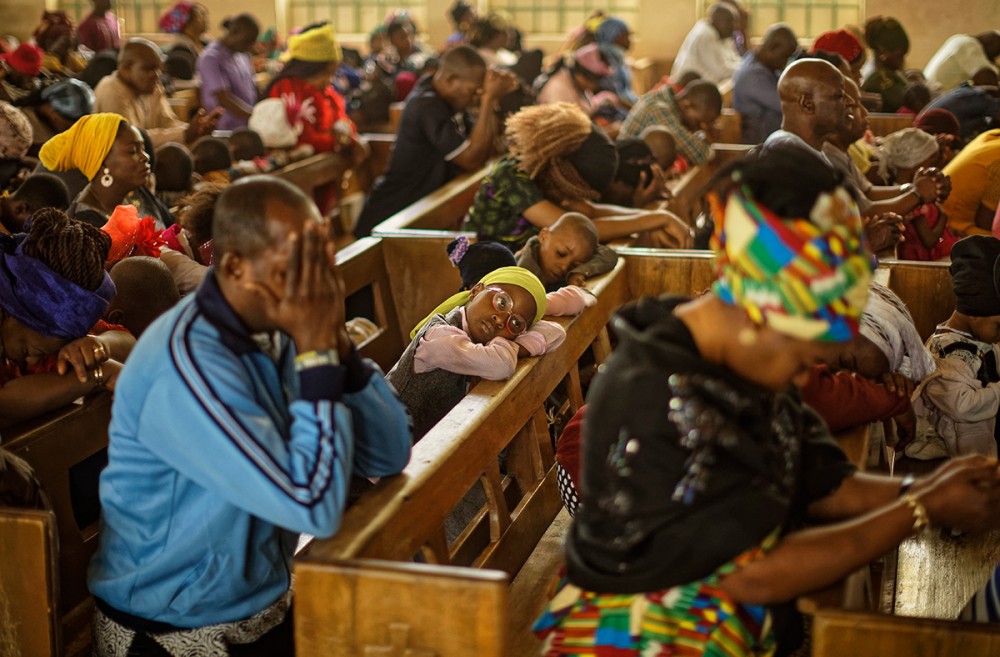Catholic nonprofit trains youth to end religious conflict in Nigeria

Nigeria, a country of more than 200 million people, is deeply divided along religious lines. For two decades, violent clashes between Muslims and Christians have claimed thousands of lives. For instance, in November 2008, violence broke out among Muslims and Christians in Jos, Nigeria, a city in the country’s middle region.
About 760 people were killed. Samuel Sunkur, a Christian who was 13 at the time, said he was devastated when his aunt’s house was destroyed and razed by mobs. Afterward, Sunkur started thinking of ways to take revenge.
“My reaction was that violence must be met with violence,” he said. “After all, even the Bible has it that ‘an eye for an eye, a tooth for a tooth.’”
In these conflicts, young people like Sunkur are almost always on the front lines. But after participating in a one-day workshop in May organized by the Africa Faith and Justice Network, a Washington-based social justice organization, Sunkur, now 26, said he has recommitted to nonviolence.
Established in 1983, the AFJN has been working in Africa to promote social justice and to advocate for human rights. In Nigeria—especially in Jos—the nonprofit has been training hundreds of young people in peacebuilding initiatives in an effort to end religious violence.
Eucharia Madueke, the coordinator of AFJN’s Women’s Empowerment Project and a Sister of Notre Dame de Namur, said the purpose of the May workshop was to help young Nigerians recognize their role in peacebuilding.
“We believe the future of the society is in the hands of the young people. So we educate them on how best to react to social issues and cases of violence—because youth’s reaction affects quality of life,” she said.
About 100 young adults attended the May training workshop, which was moderated by conflict experts. And it quickly made an impact. One month after the training, more than 40 people went on air at a Jos radio station to discuss the negative impact of violence and how dialogue and collaboration can be used for peace-building. Afterward, they took to the streets to distribute handbills. “Say no to violence,” they chanted into megaphones.
Paulina Ogbonnaya, a Dominican Sister of St. Catherine of Siena, Nigeria, was one of the trainers at the spring workshop. She said her goal was realized because the training kindled a fire in the participants.
“It was like we were waiting for something like this for a long time, and it seems it is coming together now. We are happy because we can see it from the work they started doing after the program,” she said.
And yet, the lack of adequate funding for organizing workshops and mobilizing young people remains a major challenge for AFJN. Madueke says these activities are sometimes delayed for financial reasons.
“But we will not stop training and supporting the youths,” she said.
Sunkur, who is studying sociology at the University of Jos, said he hopes to continue working with AFJN and other local organizations to advocate for peace across the country. The AFJN training also inspired him to resume work on a book about how to end religious violence through dialogue and collaboration—because, he said, he realizes there’s a need for him to take action in order to change society.
“One way of doing this is writing books to de-radicalize our people so that they accept dialogue and collaboration as the best approach to violence.”




